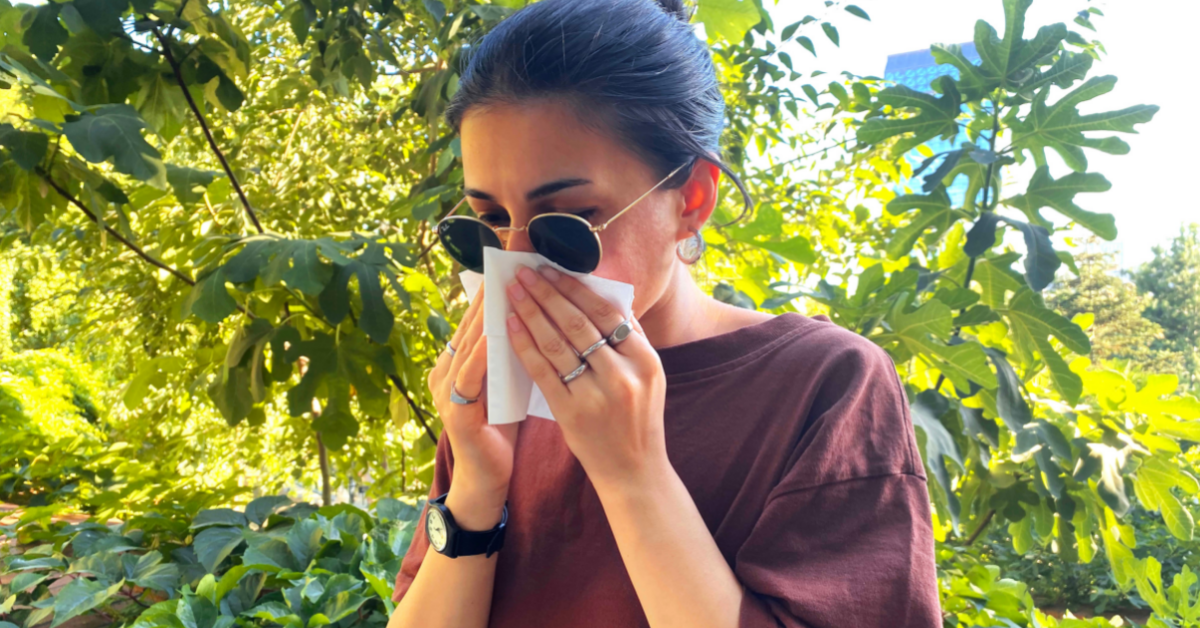
The Rise in Summer Colds
Now that most coronavirus restrictions have been lifted, the return to society and socialization means an uptick in summer colds and other respiratory illnesses.
Last year, cold and flu season was mild due to masking and social distancing. As a result, there were about 600 flu deaths during the 2020 – 2021 season. By comparison, the Centers for Disease Control and Prevention estimated roughly 22,000 deaths in the prior season.
It is unusual to see many respiratory illnesses in the spring and summer, but it’s happening—here’s what you need to know.
Respiratory Syncytial Virus
The CDC put out an advisory on June 10, 2021, to healthcare providers notifying them of increased respiratory syncytial virus (RSV) cases across the United States.
RSV causes cold-like symptoms, and most people recover. However, it can be severe in infants and the elderly.
RSV season is typically fall to spring, peaking in December to mid-February. However, because of the pandemic precautions, doctors did not see the usual spike in RSV cases last winter, and the virus seems to be making up for the lost time.
Similar to coronavirus and influenza, RSV spreads through respiratory droplets in the air when a person coughs or sneezes. RSV can also transmit from surfaces, but it’s much more likely than Covid-19 to linger on the skin and other surfaces, including toys, which can also be a source of transmission.
Coronaviruses
Using the word “coronavirus” right now generally means you’re talking about the kind that leads to COVID-19. But, technically, you could be talking about various pathogens that cause a host of other viral illnesses.
Common human coronaviruses usually cause mild to moderate upper-respiratory tract illnesses, like the common cold. In the United States, people typically get infected with common human coronaviruses in the fall and winter, but you can get infected any time of the year.
Other Winter Viruses Going Around
Aside from RSV and Coronavirus, physicians also report an increase in croup (an infection of the upper airway that obstructs breathing and causes a characteristic barking cough), gastroenteritis (also known as the stomach flu), and non-COVID upper respiratory tract infections.
Prevention
Preventing RSV and other summer viruses is virtually the same prevention measures implemented at the height of the pandemic- social distancing, disinfection, and thorough hand-washing. If someone is experiencing cold symptoms, they should stay home and avoid public places until their symptoms improve. Likewise, if a child is experiencing cold symptoms, then they should stay home and rest. In addition, people should continue frequent and thorough hand-washing for at least 20 seconds and disinfecting commonly touched surfaces.
Children are often exposed to and infected with RSV outside the home, such as in school or child-care centers. RSV can survive for many hours on hard surfaces such as tables and crib rails, so hard surfaces should be cleaned frequently.
Made in America, for America
Safetec continues to lead the fight against preventable infections and cross-contamination. Our shared vision of “protecting people” guides everything we do, from sales and marketing through manufacturing, new product development, and shipping. As a US manufacturer of infection control and first aid & OTC products, we provide end-to-end protection when you need it most.
Safetec carries everything you need to keep your patients, employees, and students safe from RSV and other respiratory viruses.
Sources:
https://www.cdc.gov/rsv/about/prevention.html
https://www.cdc.gov/rsv/about/transmission.html
https://www.cdc.gov/coronavirus/general-information.html
https://www.prevention.com/health/a36740783/summer-cold-vs-covid-19-symptoms/
